Non fermentable sugars and sweeteners are the solution to a big challenge for the home cider maker. The problem is how to make a sweet cider that naturally carbonates in the bottle without over pressurizing the bottles. If you follow r/cider, you have probably seen the question asked many times.
Adding sugar, apple juice concentrate or any other fermentable sugar to cider that finished dry will round out the flavor but if the cider has not been stabilized, by removing or killing the yeast, the sugar will be consumed by the yeast. This will lead right back to a dry cider. If that cider had been bottled after adding the sugar, the bottles will likely explode due to the excess CO2 production from the yeast eating the sugar.
Using a sweetener, natural or artificial, that does not ferment makes it possible to sweeten cider without worrying about refermentation. This ensures that fermentation will not start back up and as long as your priming sugar calculations are correct your bottles will be safe.
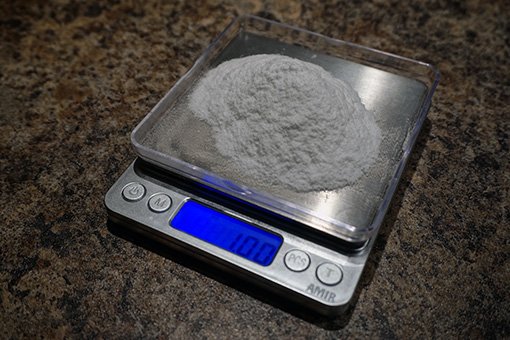
Types of non fermentable sweeteners
There are many natural and artificial sweeteners that can be used in home cider making. Each one has pros and cons but in the end, it comes down to personal preference or availability. As long as they are non fermentable, the goal of safely back sweetening bottled cider can be achieved.
- Xylitol
- Erythritol
- Stevia
- Splenda
- Lactose
- Maltodextrin
Erythritol and Xylitol are sugar alcohols that are derived from natural sources. They add a similar sweetness as pure sugar and can be measured cup for cup as sugar.
Splenda is made from sucralose and while it is a non fermentable sweetener, in my experience it has ruined the flavor of my ciders. It also leaves a distinct after taste.
Lactose and maltodextrin are also natural non fermentable sweeteners that have been used in brewing and winemaking in the past. They are not as sweet as sugar and generally add more mouthfeel than sweetness.
What is the best non fermentable sugar?
In my experience, the best non fermentable sweetener to use for back sweetening hard cider is Erythritol or Xylitol. These products are almost as sweet as sugar and can be measured gram for gram as a sugar replacement.
But, where these sweeteners really shine is the flavor. Erythritol and Xylitol both do not contribute obvious flavors or leave a bad aftertaste like some of the others.
Erythritol and Xylitol are the clear winners as they provide the sweetness similar to sugar but do not impart their own flavors like many of the others do.
While it can be hard to find in local stores, Erythritol and Xylitol can be found online in various quantities. Just make sure that it is not mixed with other ingredients such as a blend with other sugars that are fermentable.
How much sweetener to add to hard cider?
Because many of these can be measured like sugar, it is easy to calculate the amount needed using a chaptalization calculator.
For a one gallon batch at 1.000SG with the desired sweetness of 1.010, approximately 60g of sugar would need to be added to the hard cider.
Substitute the sugar for either Erythritol, Xylitol or a blend of the two and you can achieve a similar result.
The right amount of sweetness comes down to personal preference so I suggest to start by pouring a few samples and sweetening them with varying amounts. This way you will not risk over sweetening the whole batch.
Are there downsides to non fermentable sweeteners?
It seems that there is no perfect solution but the downsides are minimal.
I find with some of these sweeteners, such as stevia and Splenda, can leave an aftertaste that is very distinct in higher quantities. Some people say it doesn’t bother them but I think it makes the cider undrinkable.
Xylitol has also been known to cause stomach issues in high quantities but the amount used to sweeten cider shouldn’t be much of a problem. Also, Xylitol is toxic to dogs so it must be kept far away from pets.
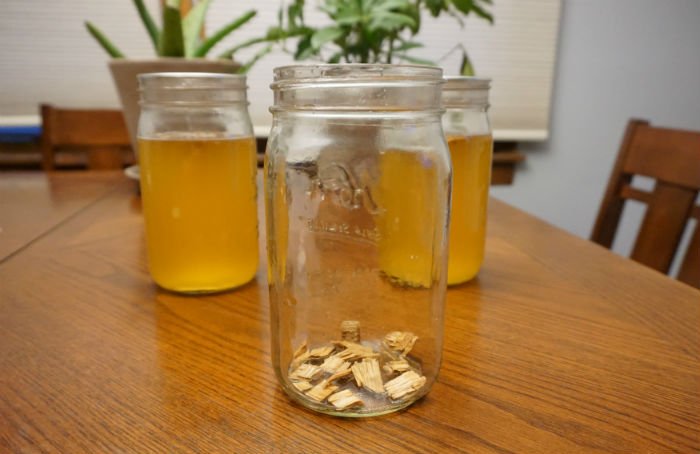
Other options for sweetening hard cider
If one of the above mentioned sweeteners won’t do the trick and you still don’t want to upgrade to kegging, there are some other options.
I found hopping cider or aging cider on oak adds a nice amount of flavor and mouthfeel that mimics sweetness. Dry hopping hard cider adds great flavor and makes a dry cider seem only slightly dry.


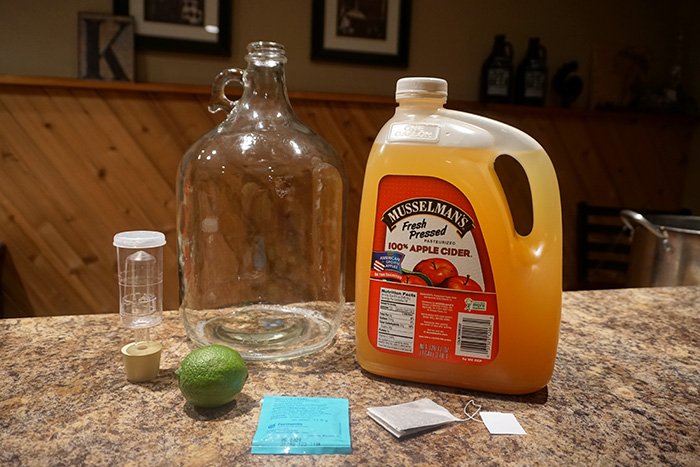
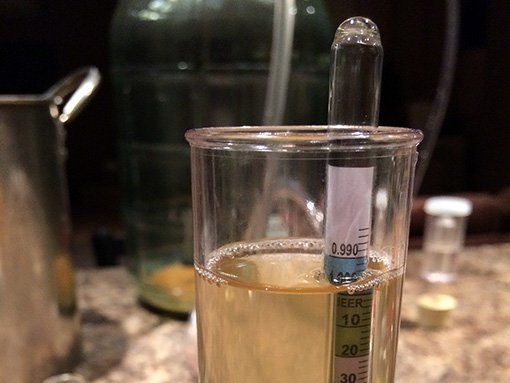
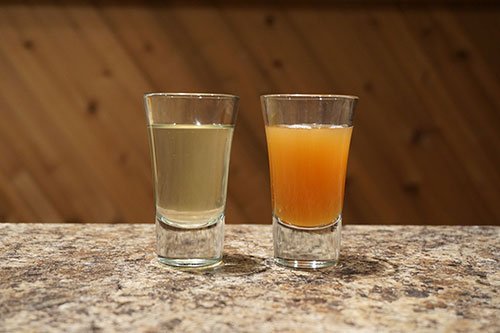

A well written and easily digested article.
Agree with the criticism of artificial sweeteners. Yak! Cheers.
Thank you for the great article.
Can xylitol and sugar be added together to make sweet and carbonated cider?
Hi Jay,
You can absolutely use both, that’s the great thing about non-fermentables like Xylitol. You use the Xylitol for sweetness and sugar for priming.
It will take some experimenting with sweeteners and carbonation because the CO2 created makes carbonic acid in the cider. This is one reason a carbonated beverage tastes different than a still beverage. That being said, the perceived sweetness in a still sample may be different when it’s carbonated.
Cheers!
Great question, as I was wondering this myself. This is exactly why I came to this site to get an answer to this question. Thank you for the info. Very helpful.
Xylitol is actually anti-bacterial. It makes a perfect sweetener for toothpaste, chewing gum, and mints for that reason. It might kill your yeast, so you might want to make sure that all fermentation and carbonation is complete before adding.
How you suggest adding Xylitol after carbonation?
So if you add sugar, the sugar will ferment. Which will then make the cider taste less sweet as the sugar is consumed, That will continue till the alcohol or something else kills the yeast. Yes the fermentation will produce co2 and carbonate the beer.
Has anyone tried using “Monk Fruit” extract for back sweetening? Or is it a “fermentable” sugar?
Hi Mark,
I have not tried using it myself but after looking into it, some people have been talking about it on brewing forums and seem to have had good results.
While the fruit itself contains fermentable sugars, it seems that the extract is not fermentable so it would be a good candidate for backsweetening as long as the flavor profiles work.
I will have to do some more research, but from my quick googling, I am interested in giving it a shot!
If you try it, let me know how it goes!
After reading this I think im going to go with the Monk Fruit.
Mark did you have good results using this?
Should I add Xylitol just before bottling or could I leave it in tertiary ferment for a few months?
Are refractomerters and hydrometers affected by Xylitol and Erythritol?
Hi. I didn’t see a forum to post questions on so I will use this article to do so. Sorry in advance if this poses an issue.
If I want a highly effervescent cider that is carbonated much like a champagne, how many CO2 volumes would that approximately be?
Thanks!
for this beginner,is it not possible to kill or stop the yeast after fermentation then add granulated sugar for sweetness
Yes. I generally use a Camden tablet to stop fermentation/kill yeast. However, this means you can’t naturally carbonate in the bottle. I like still cider, many want fizzy cider. If you do, this means using forced carbonation with CO2.
I am looking for best practice for using erythritol for back sweetening: Do you need to (or should you) boil Erythritol before adding it to cider to back sweeten? (As in making a syrup) Primarily concerned about having it dissolve completely.
I have been priming and bottling sparkling cider for several months, I am comfortable with the procedure and have been very successful. I am looking to add a touch of sweetness (2 Tablespoons per Gallon or less) without needing to pasteurize, which I have done, but it’s kind of a pain for the volume I am making.
Pingback: The Use Of Lactose In Brewing Beer – SanctuaryBrewCo
Pingback: Can I Substitute Sugar For Corn Sugar In Brewing – SanctuaryBrewCo
Pingback: The Sweetening Power Of Lactose In Beer – SanctuaryBrewCo